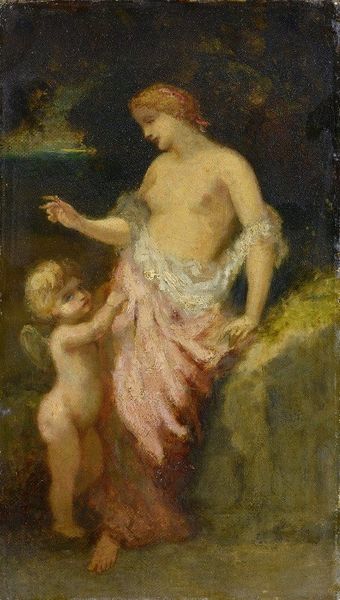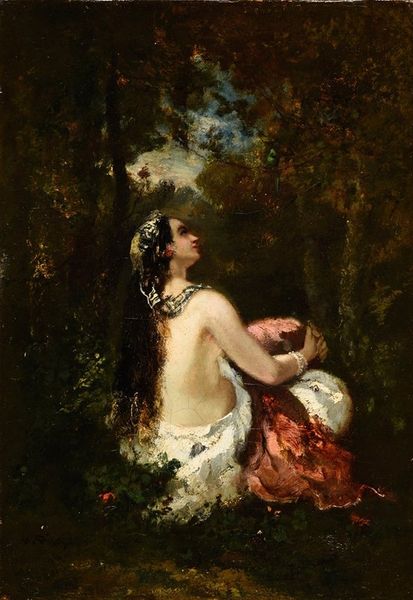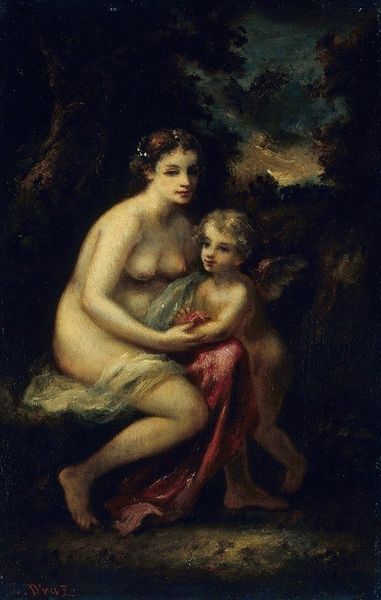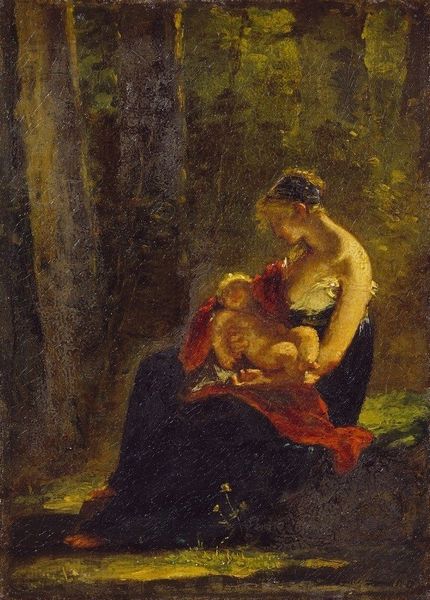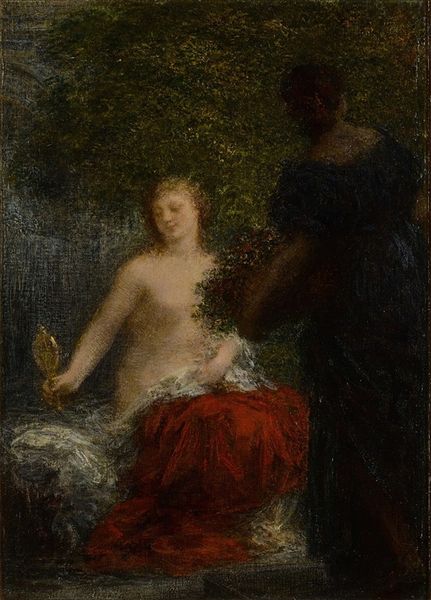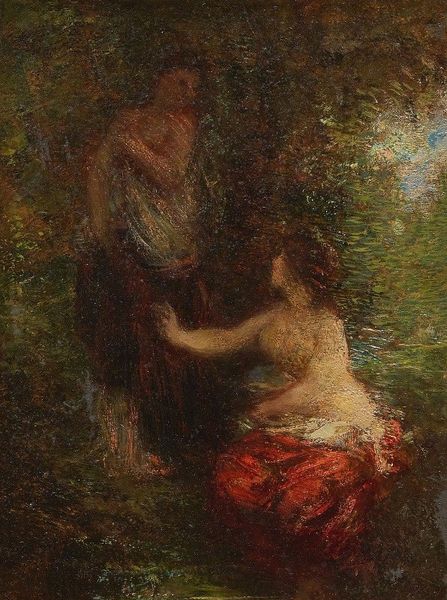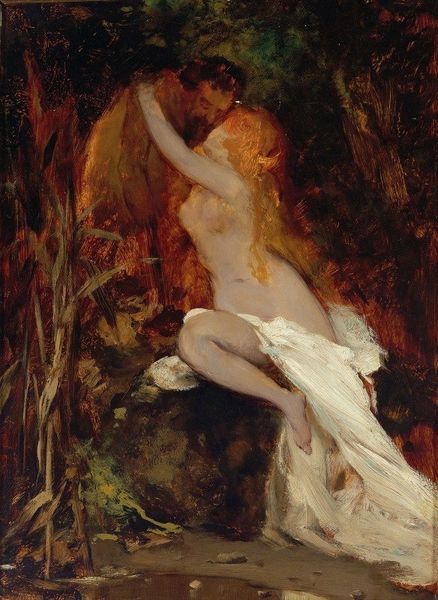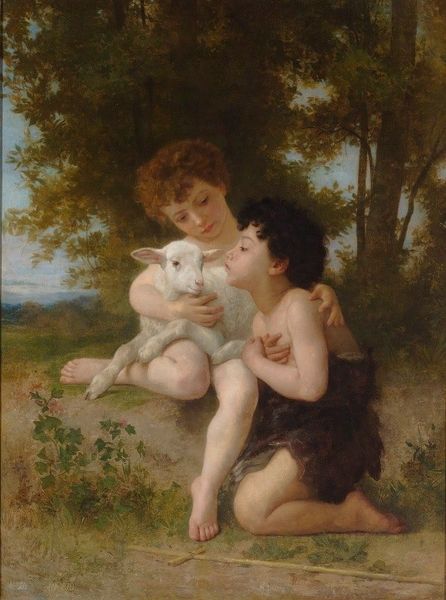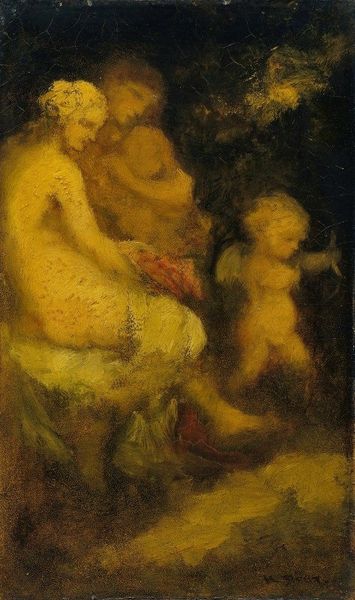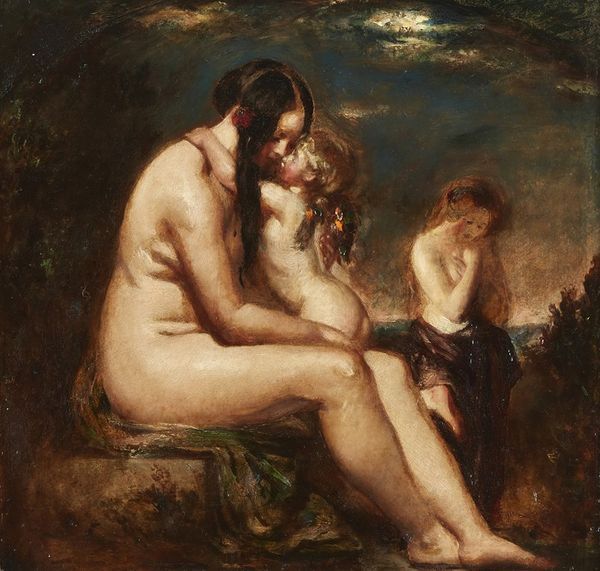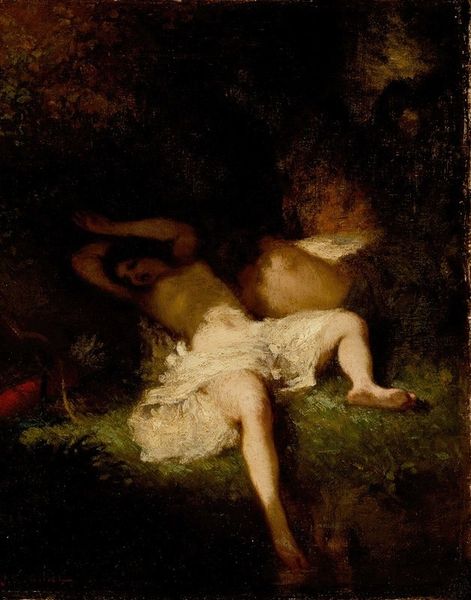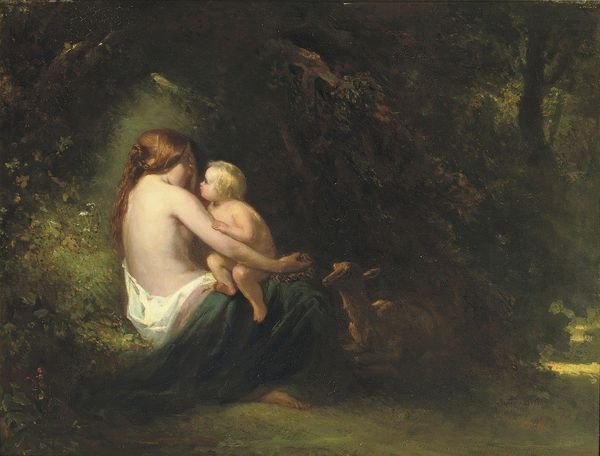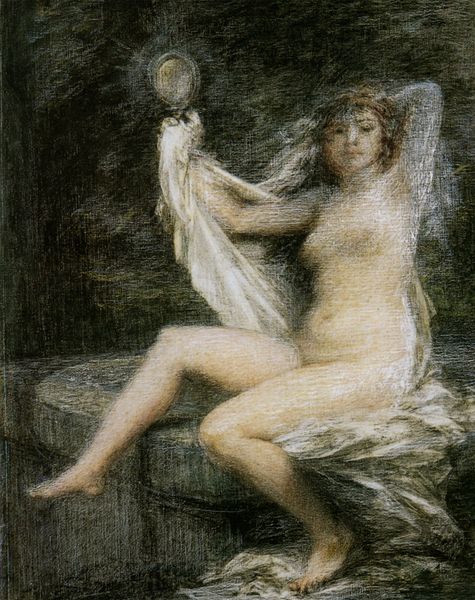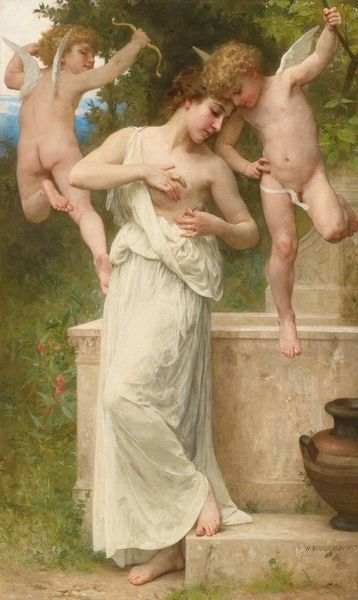
#
gouache
#
figurative
#
abstract painting
#
charcoal drawing
#
possibly oil pastel
#
oil painting
#
acrylic on canvas
#
underpainting
#
painting painterly
#
animal drawing portrait
#
watercolor
Copyright: Public Domain: Artvee
Editor: We’re looking at Narcisse Virgilio Diaz’s "After the Bath," painted sometime between 1860 and 1876. There’s a distinct blurring of the figures within this dark green setting. I’m curious – what do you see here? Curator: Immediately, I consider the means of production. Diaz utilized gouache, charcoal, possibly oil pastel and watercolor - fairly common and accessible materials for his time, pointing to a growing market for smaller, more intimate works. Given the subject matter, this accessibility prompts a consideration about whose ‘after bath’ scene we're observing. Was the depiction of the female nude accessible to women of different social classes during the time this was made, or strictly intended for men of Diaz's milieu? Editor: That's fascinating – thinking about it in terms of who would even be able to view it. So the material context shapes the subject matter? Curator: Precisely! Think about the social context; this period saw significant shifts in labor and production. Mass-produced pigments become widely available and industrial capitalism affected societal values. What effect do you imagine these readily available artistic materials may have on how people perceived high art? Was Diaz democratizing art with "After the Bath", or was he participating in further objectification of the female nude, catering to new consumer appetites fueled by a market economy? Editor: So, by examining Diaz's choice of media and the context of their availability, you're suggesting we can uncover potential dialogues about class, gender, and the commodification of art itself. It gives a fresh insight into Diaz and his motives, because honestly I hadn’t even thought about that. Curator: Exactly. Shifting our perspective towards process and materiality offers rich readings beyond purely aesthetic appreciation.
Comments
No comments
Be the first to comment and join the conversation on the ultimate creative platform.
